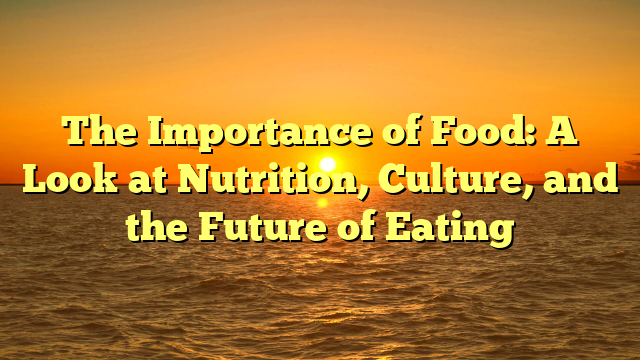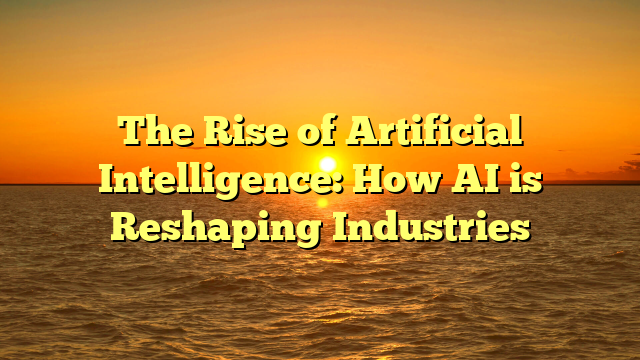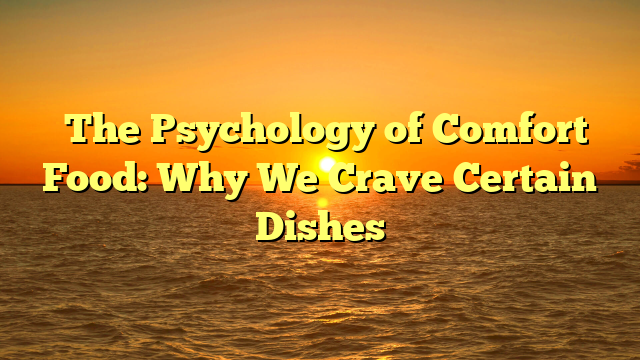
Food is more than just sustenance; it is an integral part of human culture, health, and the
environment. Throughout history, food has been a symbol of tradition, a means of survival,
and a vehicle for social interaction. As the world continues to evolve, our relationship with
food is becoming increasingly complex, with growing concerns about nutrition, sustainability,
and ethical practices. This article explores the many facets of food, from its nutritional value
to its cultural significance, and looks at the future of eating in an ever-changing world.
The Nutritional Value of Food
At its core, food provides the energy and nutrients that our bodies need to function. It
supplies essential macronutrients—carbohydrates, proteins, and fats—that are required for
energy, growth, and repair. Micronutrients, including vitamins and minerals, are just as
crucial, helping to maintain a strong immune system, support cell function, and ensure
overall well-being.
The body is a highly complex system, and the right balance of nutrients can have a profound
effect on health. A poor diet, often high in processed foods and sugars, can lead to a range
of health issues such as obesity, diabetes, and heart disease. Conversely, a balanced diet
rich in fruits, vegetables, lean proteins, and whole grains can help prevent these conditions
and promote longevity.
Today, people are becoming more conscious of the need for a varied and nutrient-dense
diet. With the rise of the health-conscious movement, many are opting for plant-based diets,
gluten-free options, or specific diets such as keto and paleo. While it’s important to note that
not all dietary trends are backed by science, the emphasis on whole foods, and the reduction
of highly processed ingredients, is a step in the right direction.
The Cultural Significance of Food
Food also serves as a powerful symbol of culture and identity. Across the globe, culinary
traditions define a region’s history, values, and way of life. For example, Italian cuisine is
renowned for its use of fresh, simple ingredients, while Japanese food emphasizes precision
and seasonal flavors. In countries like India, food is an integral part of religious rituals, with
each region boasting distinct flavors and cooking techniques that reflect the diversity of its
people.
The act of sharing a meal transcends geographical boundaries, bringing families, friends,
and communities together. Food plays a key role in holidays and celebrations—think of the
Thanksgiving turkey, the Chinese New Year feast, or the Christmas ham. These traditions
not only nourish the body but also strengthen social bonds and provide an opportunity for
people to connect and create lasting memories.
In addition to these cultural aspects, food can also serve as a form of protest or political
expression. For example, the slow food movement, which advocates for local, sustainable
food production, seeks to counter the negative effects of industrialized food systems.
Similarly, movements like “farm-to-table” emphasize the importance of sourcing ingredients
locally to reduce environmental impact and support small-scale farmers.
Food and Sustainability
In recent years, the environmental impact of food production has become a significant
concern. Agriculture, especially livestock farming, is a major contributor to climate change,
deforestation, and water pollution. As the global population continues to grow, the demand
for food is expected to rise, which will only exacerbate these issues.
In response to this challenge, many individuals, businesses, and organizations are working
to create more sustainable food systems. One such approach is the promotion of
plant-based diets, which have a lower environmental footprint compared to diets high in
animal products. The production of plant-based foods generally requires fewer natural
resources, such as water and land, and produces fewer greenhouse gas emissions.
Another area of focus is food waste. Approximately one-third of all food produced globally is
wasted, contributing to the depletion of resources and the generation of greenhouse gases.
Efforts to reduce food waste, such as better inventory management, improved food
preservation techniques, and consumer education, are becoming increasingly important in
addressing global hunger and sustainability issues.
Innovation in food technology also offers hope for a more sustainable future. The rise of
lab-grown meat, for example, presents a potential solution to the environmental damage
caused by conventional meat production. By growing meat in a lab setting, scientists hope to
reduce the need for livestock farming and, consequently, the associated environmental
costs.
The Future of Eating
As the world grapples with issues such as climate change, resource depletion, and health
concerns, the way we eat will likely continue to evolve. In the future, food may become more
personalized, with advancements in genetic testing allowing individuals to tailor their diets
based on their specific nutritional needs. The growing interest in functional foods—foods that
provide health benefits beyond basic nutrition, such as probiotic-rich yogurt or fortified
cereals—may also become more prominent.
The trend of food delivery services and meal kits, which gained significant popularity during
the COVID-19 pandemic, is expected to continue as convenience becomes increasingly
important in people’s busy lives. Additionally, advances in technology, such as the use of
artificial intelligence and robotics in food production and preparation, may further
revolutionize how we grow, prepare, and consume food.
Moreover, as awareness of the environmental and ethical implications of food choices
grows, the popularity of alternative proteins—such as plant-based meat substitutes, insect
protein, and lab-grown meats—will likely rise. With growing concerns about factory farming
and the ethical treatment of animals, many people are seeking more sustainable and
humane options for protein sources.
Conclusion
Food is an essential part of life, providing us with the nourishment needed for survival,
health, and growth. Beyond its role as sustenance, food also connects us to our cultures,
identities, and communities. As slot 4d face unprecedented challenges related to climate
change, sustainability, and health, it is clear that the way we produce, consume, and think
about food must change. By embracing more sustainable practices, supporting local food
systems, and exploring innovative solutions, we can ensure that food continues to nourish
both individuals and the planet for generations to come.




